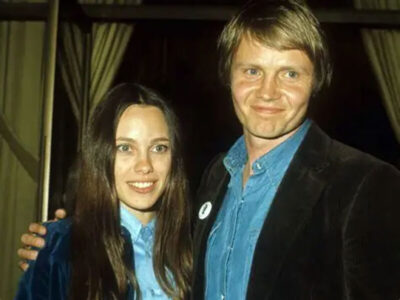What started as a $4,000 investment by her mom has turned into a legitimate music career spanning over a decade. Rebecca’s journey from viral meme to respected artist shows us something important about resilience, smart business moves, and how to turn even the harshest criticism into opportunity.
What’s Rebecca Black’s Net Worth in 2024?
Here’s where things get interesting. Different sources give us different numbers for Rebecca Black’s net worth, and there’s actually a good reason for that.
Celebrity Net Worth puts her at around $500,000, while TheRichest estimates closer to $1.2 million. Why the big difference? Well, calculating net worth for digital creators isn’t as straightforward as it is for traditional celebrities.
The $500,000 figure probably takes a more conservative approach. It looks at her main income sources like YouTube ad revenue, music streaming royalties, and social media partnerships. The higher estimate might factor in things like future earning potential, brand value, and the rights to her music catalog.
Either way, both numbers tell the same story. Rebecca has successfully transformed what could have been a career-ending moment into genuine financial success. Not many people can say they’ve done that.
Growing Up Before Going Viral
Rebecca Renee Black was born on June 21, 1997, in Irvine, California. Her parents, Georgina and John, are both veterinarians, which gave Rebecca a pretty normal middle-class upbringing. Her mom’s Mexican heritage and her dad’s mix of English, Italian, and Polish roots made for a diverse family background.
School wasn’t always easy for Rebecca. She started at private school but switched to public education in sixth grade. Unfortunately, bullying became a real problem, and her family eventually decided homeschooling was the best option. Little did they know this flexibility would become crucial when Rebecca’s life took an unexpected turn.
The Black family had the financial stability to support their daughter’s interests. When the opportunity came up to invest in Rebecca’s music dreams, that $4,000 seemed like a reasonable risk for parents who wanted to support their kid’s passion.
The “Friday” Story: How It All Went Down
In early 2011, Rebecca’s mom made a decision that would change everything. She paid $4,000 to ARK Music Factory, a company that specialized in creating music videos for aspiring young artists. For that price, they got the whole package: songwriting, recording, video production, and most importantly, full ownership of the final product.
ARK Music Factory was run by Patrice Wilson and Clarence Jey, and their business model was pretty simple. Families would pay a few thousand dollars, and they’d create a professional-looking music video for their kids. Most of these videos would get a few hundred views and that would be it.
“Friday” was written by Clarence Jey, and honestly, it was designed to be a simple, catchy song about teenage life. The video featured Rebecca singing about looking forward to the weekend, complete with scenes of high school life and heavily Auto-Tuned vocals.
When the video went live on February 10, 2011, nobody expected what happened next. For the first month, it barely got 1,000 views. Then March 11 hit, and everything changed.
The video exploded, but not in the way anyone wanted. Within days, millions of people were watching “Friday,” but mostly to make fun of it. Twitter went crazy, blogs picked it up, and suddenly Rebecca Black was everywhere for all the wrong reasons.
The Money Behind the Madness
Here’s something that might surprise you: despite all the hate, “Friday” made serious money.
YouTube’s revenue-sharing program was paying about $1 per 1,000 views back then, with creators getting 68% of the cut. With over 33 million views in the first month alone, that meant roughly $20,000 in YouTube revenue split between Rebecca and ARK Music Factory.
But the real money came from iTunes. Billboard calculated that Rebecca was pulling in about $24,900 per week from digital sales during the song’s peak. The track was selling around 40,000 copies weekly and ranking in the top 50 on iTunes.
Here’s how the math worked: iTunes was paying artists about $0.70 per download after fees. Rebecca used CD Baby for distribution (which took a 9% cut), and there were mechanical royalties to pay. Still, with those sales numbers, the money added up fast.
By 2014, TheRichest estimated Rebecca had earned around $348,000 just from YouTube views as the video racked up over 188 million total views. That’s the power of long-term viral content.
To put this in perspective, Lady Gaga’s “Born This Way” sold 1.65 million copies in four weeks around the same time, with 23.5 million YouTube views. Rebecca’s numbers as an independent artist with zero marketing budget were actually pretty impressive.
Building a Real Career
After the initial “Friday” chaos died down, Rebecca faced a choice: disappear or double down. She chose to fight for her music career, and it paid off.
Her first smart move was signing with DB Entertainment and manager Debra Baum. This gave her professional guidance she’d been missing. Then came an even smarter move: after a legal battle with ARK Music Factory, Rebecca started her own record label, RB Records. Pretty impressive for a teenager.
Her first independent release was “My Moment” in July 2011. The production quality was noticeably better, and you could hear real improvement in her vocals. “Person of Interest” followed in November, showing she was serious about this music thing.
2012 was a turning point. She released “Sing It” and “In Your Words” while signing with Maker Studios’ YouTube network. This partnership gave her better resources for content creation and helped grow her audience beyond the viral curiosity seekers.
The real validation came in 2013 with “Saturday,” a collaboration with Dave Days that served as a sequel to “Friday.” Unlike its predecessor, people actually liked this one. It hit number 55 on the Billboard Hot 100, proving Rebecca could make music that charted for the right reasons.
She even appeared on “The Four: Battle for Stardom” in its second season, showcasing her improved vocal abilities to a national TV audience. These appearances helped normalize her presence in entertainment media.
How Rebecca Makes Money Today
Rebecca’s 2024 income strategy is all about diversification. She’s not relying on one hit or one platform anymore.
YouTube remains central to her financial strategy. With 1.5 million subscribers, she regularly posts music covers, Q&As, vlogs, and behind-the-scenes content. This keeps the ad revenue flowing and maintains audience engagement between major releases.
Brand partnerships have become increasingly important. Companies value her authentic connection with her audience and her story of overcoming adversity. Her journey resonates with brands focused on resilience and personal growth.
Streaming platforms like Spotify and Apple Music provide steady royalty income from both her new music and the continued popularity of “Friday.” Yes, people still stream that song, and every play means money in Rebecca’s pocket.
Social media influence is another revenue stream. With nearly a million Instagram followers, she’s attractive to brands looking for authentic influencer partnerships. Her posts about music, personal growth, and LGBTQ+ advocacy generate strong engagement.
Live performances give her both immediate income and networking opportunities. She’s evolved from a studio creation to a complete performing artist, and these shows help build industry connections.
The rights to her music catalog continue generating income through licensing deals. TV shows and commercials occasionally use “Friday” for nostalgic or comedic effect, creating unexpected revenue spikes.
From Meme to Role Model
Rebecca’s personal transformation might be even more impressive than her financial success. She went from receiving death threats that required police investigation to becoming an advocate for resilience and LGBTQ+ rights.
The initial aftermath of “Friday” was genuinely traumatic. The Anaheim Police Department had to investigate threats against her safety. The level of hate went way beyond normal criticism into dangerous territory.
Instead of letting this define her negatively, Rebecca used her platform to speak out about cyberbullying and its impact on young people. Her willingness to discuss the psychological toll of viral ridicule has made her a valuable voice in conversations about internet culture.
A major moment came in April 2020 when she publicly came out as queer on the “Dating Straight” podcast. This announcement was met with widespread support, showing how much her public image had evolved over the years.
Rebecca’s approach to her past has been characterized by humor and grace. Rather than running from “Friday,” she’s embraced it as part of her story while showing how she’s grown beyond it. This mature handling of her viral past has earned respect from former critics.
Her charitable work has also enhanced her reputation. She’s donated portions of her earnings to causes like Japan tsunami relief and school arts programs, showing she’s committed to using her platform for good.
What’s Next for Rebecca Black?
Looking ahead, Rebecca’s financial future looks promising. The music industry continues evolving in ways that favor independent artists like her. Streaming platforms provide global reach, while social media enables direct fan engagement.
Her unique experience navigating viral fame gives her insights that could translate to new revenue streams. Speaking engagements, consulting work, and potential book deals could diversify her income while leveraging her distinctive story.
The continued cultural relevance of “Friday” ensures Rebecca will maintain baseline recognition and income for years to come. As internet culture becomes increasingly nostalgic, her role in early viral video history may become more valuable, not less.
Her advocacy work within the LGBTQ+ community opens doors to partnerships that align with her values while providing financial benefits. Brands increasingly seek authentic partnerships with advocates who can genuinely represent their values.
Rebecca Black’s story proves that financial success in the digital age requires adaptability and resilience. Her ability to transform criticism into opportunity, viral ridicule into sustainable career, and teenage trauma into adult advocacy shows what’s possible with determination and smart strategy.
Her net worth represents more than just money. It symbolizes the triumph of persistence over adversity and authenticity over artifice. For anyone who’s faced public criticism or personal challenges, Rebecca’s journey offers hope that it’s possible to build something meaningful from even the most difficult circumstances.
















